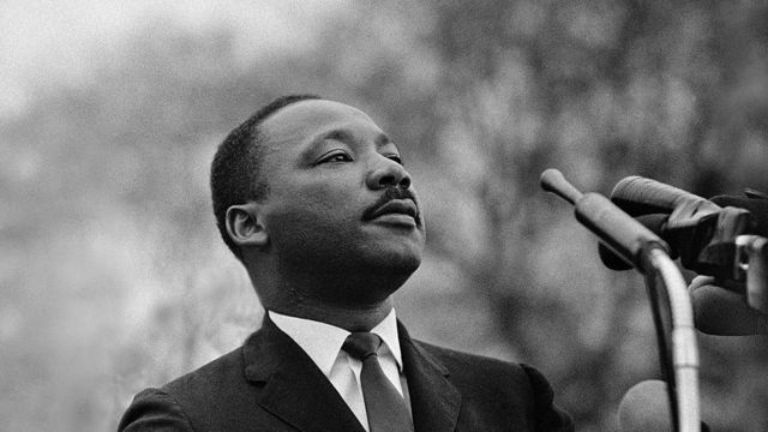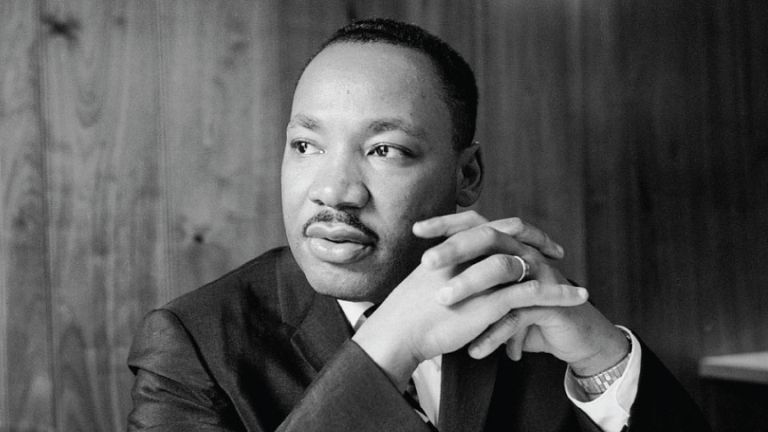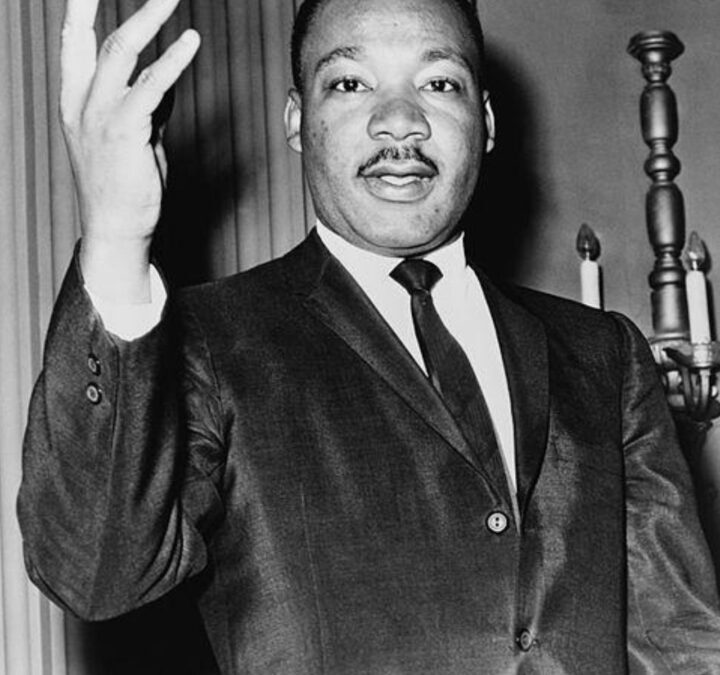Just as the name Martin Luther King Jr. instantly evokes images of bravery, equality, and justice, his role as a leader in the Civil Rights Movement remains unparalleled in American history. With his powerful speeches and unwavering dedication towards achieving racial equality, King became a beacon of hope for millions striving for a more just society. This blog post probes into the life and legacy of Martin Luther King Jr., shedding light on his remarkable journey as a champion of equality and civil rights.

Early Life and Influences
Childhood and Education
Early in Martin Luther King’s life, he demonstrated exceptional academic abilities and a deep sense of justice. Growing up in Atlanta, Georgia, he excelled in school and skipped two grades, entering college at the young age of 15. His upbringing in a middle-class family provided a strong foundation for his future contributions to the Civil Rights Movement.
Religious and Philosophical Roots
Roots in the Baptist Church and exposure to the teachings of nonviolent resistance shaped King’s worldview and leadership style. At Morehouse College, he was influenced by the writings of civil rights advocates like Mahatma Gandhi, which inspired a commitment to fighting for equality through peaceful means.
It was during his time at Boston University that King examined deeper into Christian theology, studying the works of prominent theologians and integrating their teachings into his activism. This blend of faith and philosophy would become a cornerstone of King’s approach to social change.
The Rise of a Leader
The Montgomery Bus Boycott
You witnessed the turning point in Martin Luther King’s journey when, on December 5, 1955, he rose to prominence during the Montgomery Bus Boycott. This influential protest, sparked by Rosa Parks’ refusal to give up her seat, was a vital moment in the Civil Rights Movement. King’s impassioned speeches and unwavering commitment to nonviolent resistance galvanized a community and set the stage for his future leadership.
Formation of the Southern Christian Leadership Conference (SCLC)
On January 10, 1957, Martin Luther King Jr. and other Civil Rights leaders officially founded the Southern Christian Leadership Conference (SCLC). This organization aimed to coordinate and support nonviolent protests for civil rights reform. King’s role as the SCLC’s first president solidified his position as a central figure in the fight for racial equality in America.
A year after the SCLC’s formation, King led the organization in its first major action: the Crusade for Citizenship. This campaign sought to register African Americans to vote in the South, a critical step towards achieving political empowerment and challenging discriminatory laws and practices. Through the SCLC, King continued to inspire and unite people in the quest for justice and equality.

Major Campaigns and Speeches
The Birmingham Campaign and the March on Washington
Your
One of Martin Luther King’s most iconic campaigns was the Birmingham Campaign in 1963, where he led nonviolent protests against segregation and racism in Alabama. The campaign drew national attention to the brutal tactics used by authorities against peaceful demonstrators, including the use of police dogs and fire hoses on children. This pivotal moment in the Civil Rights Movement eventually led to the passage of the Civil Rights Act of 1964. The March on Washington for Jobs and Freedom in the same year further solidified King’s position as a prominent civil rights leader, where he delivered his famous « I Have a Dream » speech.
« I Have a Dream »: The Speech that Echoed Across the World
For
One of the most memorable moments in civil rights history occurred on August 28, 1963, when Martin Luther King Jr. delivered his iconic « I Have a Dream » speech during the March on Washington. This powerful speech called for an end to racism and envisioned a future where people would not be judged by the color of their skin but by the content of their character. King’s resonant words and impassioned delivery have continued to inspire generations of people to fight for equality and justice.
World
The « I Have a Dream » speech has become one of the most famous and impactful speeches in history, solidifying Martin Luther King Jr.’s legacy as a champion of equality. The speech continues to resonate across the world as a call to action for social change and a reminder of the power of nonviolent protest in the face of adversity. King’s vision of a more just and equitable society continues to inspire people of all backgrounds to work towards a world where everyone is treated with dignity and respect.

Legacy and Remembering Dr. King
Assassination and the Aftermath
Remembering the tragic event of April 4, 1968, when Dr. Martin Luther King Jr. was assassinated at the Lorraine Motel in Memphis, Tennessee. His death left a profound void in the Civil Rights Movement and shocked the nation. Riots erupted in over 100 cities across the United States, reflecting the deep impact of his loss on the American people.
Continuing Influence and Honors
With unwavering commitment to equality and justice, Dr. King’s legacy continues to inspire generations worldwide. His powerful speeches and peaceful protests laid the foundation for significant legislative changes, such as the Civil Rights Act of 1964 and the Voting Rights Act of 1965. His message of love, unity, and nonviolent resistance remains a guiding light in the ongoing fight against discrimination and oppression.
To honor his remarkable contributions, Martin Luther King Jr. Day was established as a federal holiday in the United States, celebrated annually on the third Monday in January. Numerous streets, schools, and monuments bear his name, serving as a constant reminder of his enduring impact on society.
FAQ
Q: Who was Martin Luther King Jr.?
A: Martin Luther King Jr. was a prominent civil rights activist and leader of the African-American civil rights movement in the United States.
Q: What is Martin Luther King Jr. best known for?
A: Martin Luther King Jr. is best known for his role in the advancement of civil rights using nonviolent civil disobedience based on his Christian beliefs.
Q: What impact did Martin Luther King Jr. have on society?
A: Martin Luther King Jr. played a key role in ending the legal segregation of African-American citizens in the United States, as well as his efforts towards achieving equality for all Americans.
Q: What is the significance of Martin Luther King Jr.’s « I Have a Dream » speech?
A: The « I Have a Dream » speech delivered by Martin Luther King Jr. during the March on Washington for Jobs and Freedom in 1963 is one of the most iconic speeches in American history, advocating for civil and economic rights and an end to racism.
Q: How did Martin Luther King Jr. die?
A: Martin Luther King Jr. was assassinated on April 4, 1968, in Memphis, Tennessee, by James Earl Ray, a white supremacist, leaving behind a legacy of courage, non-violence, and determination in the fight for justice and equality.
See also our article: Thurgood Marshall










